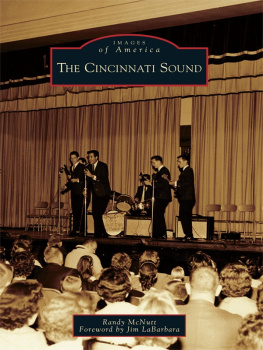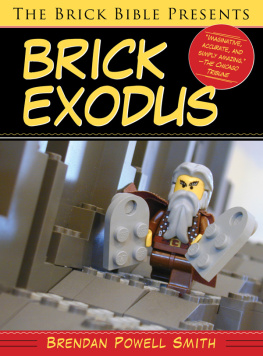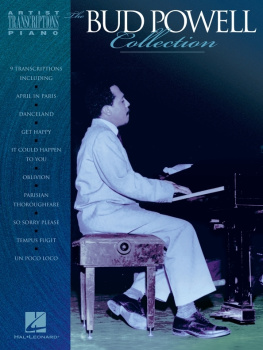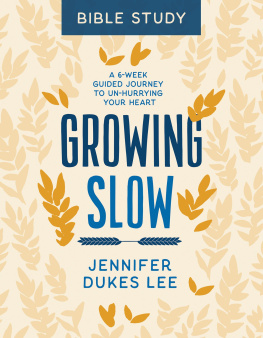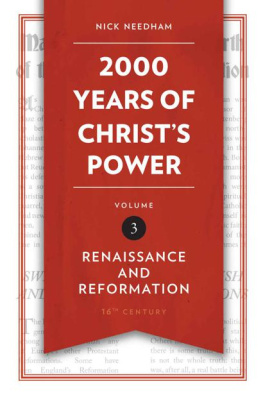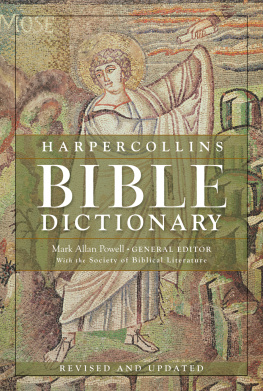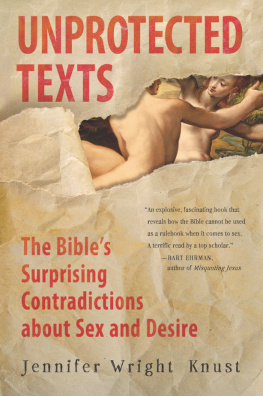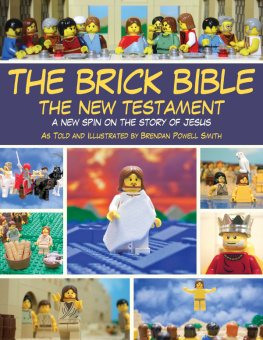Jennifer Powell McNutt - The Peoples Book: The Reformation and the Bible
Here you can read online Jennifer Powell McNutt - The Peoples Book: The Reformation and the Bible full text of the book (entire story) in english for free. Download pdf and epub, get meaning, cover and reviews about this ebook. year: 2017, publisher: InterVarsity Press / IVP Academic, genre: Religion. Description of the work, (preface) as well as reviews are available. Best literature library LitArk.com created for fans of good reading and offers a wide selection of genres:
Romance novel
Science fiction
Adventure
Detective
Science
History
Home and family
Prose
Art
Politics
Computer
Non-fiction
Religion
Business
Children
Humor
Choose a favorite category and find really read worthwhile books. Enjoy immersion in the world of imagination, feel the emotions of the characters or learn something new for yourself, make an fascinating discovery.

- Book:The Peoples Book: The Reformation and the Bible
- Author:
- Publisher:InterVarsity Press / IVP Academic
- Genre:
- Year:2017
- Rating:5 / 5
- Favourites:Add to favourites
- Your mark:
- 100
- 1
- 2
- 3
- 4
- 5
The Peoples Book: The Reformation and the Bible: summary, description and annotation
We offer to read an annotation, description, summary or preface (depends on what the author of the book "The Peoples Book: The Reformation and the Bible" wrote himself). If you haven't found the necessary information about the book — write in the comments, we will try to find it.
The Peoples Book: The Reformation and the Bible — read online for free the complete book (whole text) full work
Below is the text of the book, divided by pages. System saving the place of the last page read, allows you to conveniently read the book "The Peoples Book: The Reformation and the Bible" online for free, without having to search again every time where you left off. Put a bookmark, and you can go to the page where you finished reading at any time.
Font size:
Interval:
Bookmark:
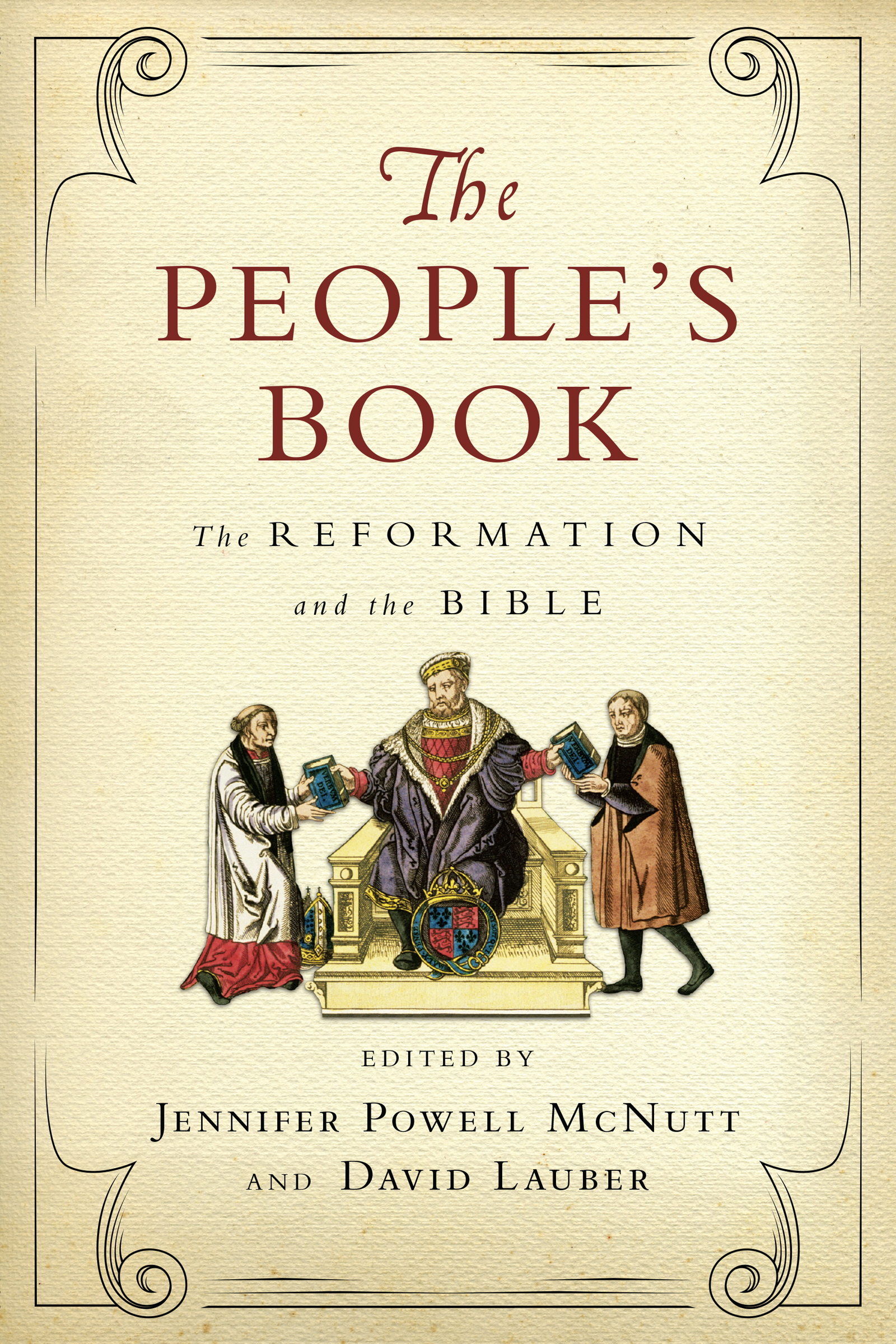
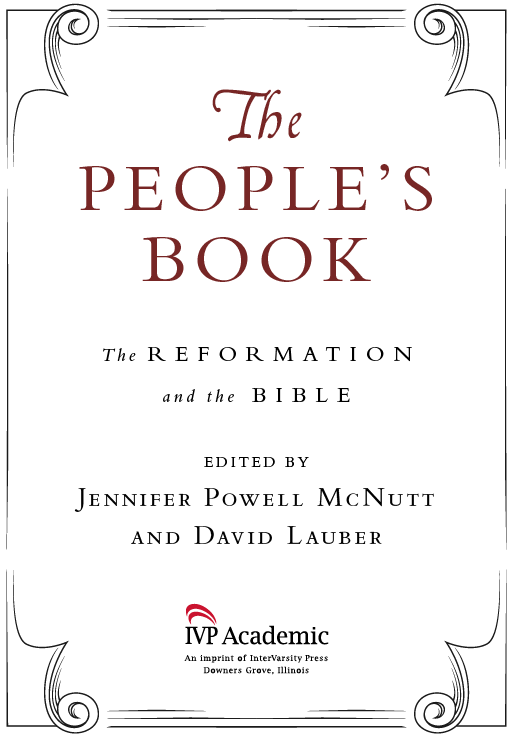
InterVarsity Press
P.O. Box 1400, Downers Grove, IL 60515-1426
ivpress.com
2017 by Jennifer Powell McNutt and David Lauber
All rights reserved. No part of this book may be reproduced in any form without written permission from InterVarsity Press.
InterVarsity Pressis the book-publishing division of InterVarsity Christian Fellowship/USA, a movement of students and faculty active on campus at hundreds of universities, colleges, and schools of nursing in the United States of America, and a member movement of the International Fellowship of Evangelical Students. For information about local and regional activities, visit intervarsity.org .
Cover design: Cindy Kiple
Images:King Henry VIII by Hans Holbein Private Collection / The Stapleton Collection / Bridgeman Images
paper texture: Ursula Alter/iStockphoto
ornate border: kenny371/iStockphoto
ISBN 978-0-8308-9177-1 (digital)
ISBN 978-0-8308-5163-8 (print)
Library of Congress Cataloging-in-Publication Data
Names: Wheaton Theology Conference (25th : 2016 : Wheaton College, Ill.) |
McNutt, Jennifer Powell, editor. | Lauber, David, 1966- editor.
Title: The peoples book : the Reformation and the Bible / edited by Jennifer
Powell McNutt and David Lauber.
Description: Downers Grove, IL : InterVarsity Press, 2017. | Includes
bibliographical references and index.
Identifiers: LCCN 2016058922 (print) | LCCN 2017000030 (ebook) | ISBN
9780830851638 (pbk. : alk. paper) | ISBN 9780830891771 (eBook)
Subjects: LCSH: BibleHistoryCongresses. | EuropeChurch history16th
centuryCongresses. | ReformationCongresses.
Classification: LCC BS447.5.E85 W49 2016 (print) | LCC BS447.5.E85 (ebook) |
DDC 220.094dc23
LC record available at https://lccn.loc.gov/2016058922
Introduction: That Most Precious Jewel
Jennifer Powell McNutt and David Lauber
Chapter One: Teaching the Church: Protestant Latin Bibles and Their Readers
Bruce Gordon
Chapter Two: Scripture, the Priesthood of All Believers, and Applications of 1 Corinthians 14
G. Sujin Pak
Chapter Three: Learning to Read Scripture for Ourselves: The Guidance of Erasmus, Luther, and Calvin
Randall Zachman
Chapter Four: The Reformation and Vernacular Culture: Wales as a Case Study
D. Densil Morgan
Chapter Five: The Reformation as Media Event
Read Mercer Schuchardt
Chapter Six: The Interplay of Catechesis and Liturgy in the Sixteenth Century: Examples from the Lutheran and Reformed Traditions
John D. Witvliet
Chapter Seven: Word and Sacrament: The Gordian Knot of Reformation Worship
Jennifer Powell McNutt
Chapter Eight: John Calvins Commentary on the Council of Trent
Michael Horton
Chapter Nine: The Bible and the Italian Reformation
Christopher Castaldo
Chapter Ten: Reading the Reformers After Newman
Carl Trueman
Chapter Eleven: From the Spirit to the Sovereign to Sapiential Reason: A Brief History of Sola Scriptura
Paul C. H. Lim
Chapter Twelve: Perspicuity and the Peoples Book
Mark Labberton
We are, first and foremost, grateful to the speakers at the 2016 Wheaton Theology Conference for their careful and stimulating work. We also owe heartfelt gratitude to many others whose work, support, and encouragement made the conference possible. We particularly thank Paula Anderson for her skillful oversight of the many logistical details of the conference. Numerous Wheaton undergraduate and graduate students provided helpful assistance to conference presenters and attenders. Wheaton librarian Brittany Adams organized a wonderful exhibit of the Oxley Familys Rare English Bibles Collection. Soprano Dawn Holt Lauber led worship with Tony Payne of Wheatons Conservatory of Music, and she performed a selection of J. S. Bach arias and solo cantatas with pianist and Wheaton emeritus professor William Phemister. Members of the Wheaton student drama company, Arena Theater, provided dramatic readings of biblical passages from the King James Version. We are grateful for Rev. David Foxgrovers leading of a workshop for pastors considering ways for churches to mark the five hundredth anniversary of the Reformation by reflecting on the Bible and culture today.
The conference and this volume are possible only because of the rich and ongoing partnership between the Wheaton Theology Conference and InterVarsity Press. We are once again grateful to IVP for their advice, guidance, and support. In this his last year at the helm of IVP, we owe a special thanks to publisher Bob Fryling for his generosity and insight that made this conference, along with many prior conferences, move from initial planning stages to fruitful execution. We are also grateful to David McNutt and David Congdon, associate editors at IVP Academic, for their care and oversight of many of the details of the conference and publication process of the volume. We are grateful for the leadership of Jeffrey Bingham, associate dean of the biblical and theological studies department at Wheaton. Finally, we wish to express our thanks to Philip G. Ryken, president, and Jill Pelez Baumgaertner, dean of humanities and theological studies, for their continual support and attention to fostering theological scholarship at Wheaton College.
In 1534 King Henry VIII declared himself to be Supreme Head of the Church of England according to his groundbreaking Act of Supremacy. The Erastian reform that transpired by all accounts made little effort to align with Protestantism in the truest sense of the term, and perhaps this dynamic is no better evident than in the treatment of the first authorized English translation of the Bible. In 1539 the Great Bible was published with royal patronage, a first for its lineage. The Holbein frontispiece, a section of which graces the cover of this volume and which greeted the reader of the Great Bible, strikingly illustrates the complexity of denoting the Bible as the peoples book during the Reformation era (see fig. 1).
Much scholarly attention has been given to exploring the way in which Henry VIII refashioned the image of his reign in the wake of his Act of Supremacy and by the time of the emergence of the Great Bible. Known previously for his strict censorship policies against English books (i.e., Protestant literature), Henry began to make allowances for the licensing of the English Bible. Scholar Richard Rex explains:
It was the patronage and encouragement of the Henrician regime after the break with Rome that gave the vernacular Bible its central place in the English church.... Once Henry had detached the Church of England from the jurisdiction of the pope... official attitudes rapidly swung round, largely thanks to the influence of Cranmer and Cromwellan influence which was manifestly Protestant rather than Erasmian.
That same year, Holbeins depiction of Henry for the Great Bible presented a Reformation king without equivocation as he handed the Bible down the ranks, reaching one station after the other. Normally, a dedication portrait depicts the patron as receiving a copy of the book from the author or translator, but in this depiction Henry is the one handing the
Font size:
Interval:
Bookmark:
Similar books «The Peoples Book: The Reformation and the Bible»
Look at similar books to The Peoples Book: The Reformation and the Bible. We have selected literature similar in name and meaning in the hope of providing readers with more options to find new, interesting, not yet read works.
Discussion, reviews of the book The Peoples Book: The Reformation and the Bible and just readers' own opinions. Leave your comments, write what you think about the work, its meaning or the main characters. Specify what exactly you liked and what you didn't like, and why you think so.

